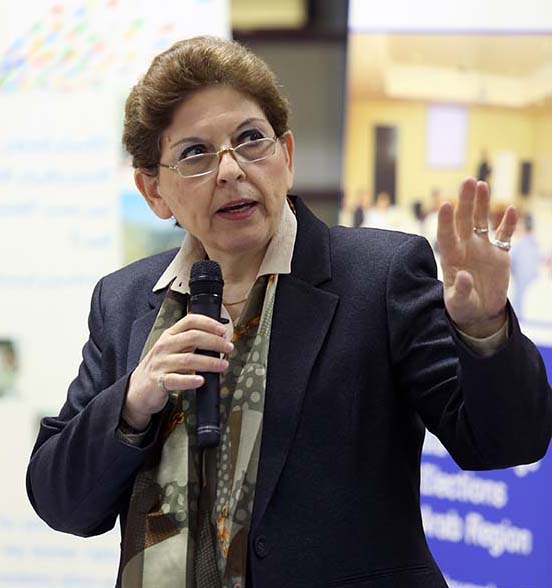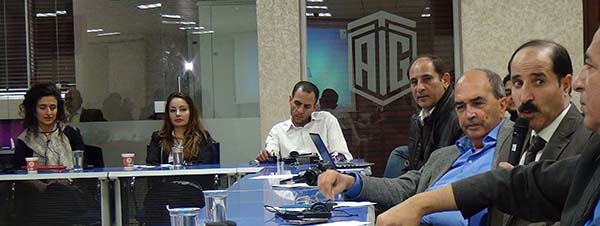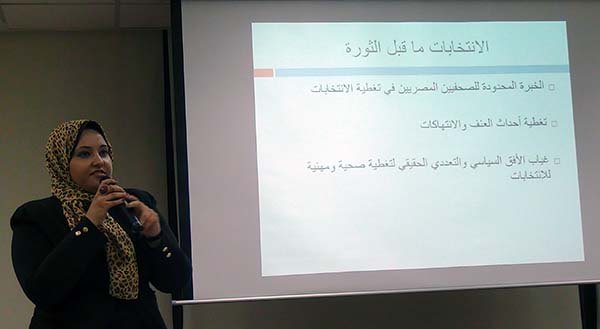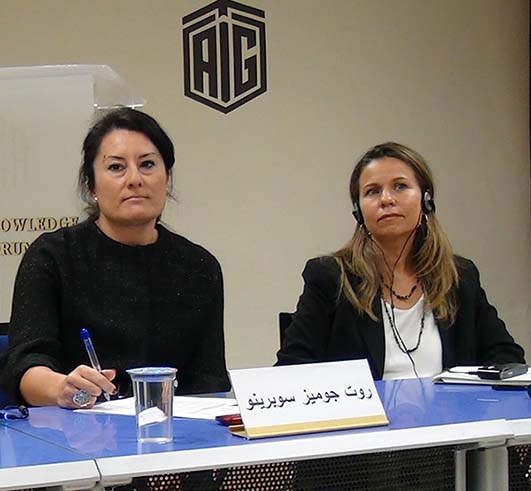Lebanese media covering elections face a double challenge: reporting events tied to antiquated sectarian-based laws and grasping draft legislation aimed at reforming what’s on the books.
They must also deal with constraints on journalists and their organizations that hamper newsgathering and dissemination, Media Unlimited director Magda Abu-Fadil told reporters at a forum in Amman.
Her presentation drew on attempts by Lebanon’s National Commission on Parliamentary Electoral Law to streamline procedures, regulations on campaign finances, advertising, the voting age, establishing a quota for women candidates, permitting voters to cast their ballots in their place of residence, and, ensuring that serving cabinet members don’t double as legislators.
She showed video clips on a satirical campaign mocking politicians’ hollow promises, a spot on the divisiveness of sectarianism, the symbiotic relationship between the media and politicians, and how Lebanese youth view their elected officials.
Abu-Fadil also stressed the importance of being able to decypher government budgets and how public funds are spent.
A common thread at the forum was learning all about the candidates, their programs, the parties involved, campaign promises, policies, electoral rules and procedures, the vote counting process, surveys, and security measures.
The two-day seminar in November 2013 grouped Jordanian journalists who had attended training workshops on elections coverage with counterparts from Tunisia, Egypt, Lebanon, Iran, Palestine and Iraq who had covered elections in their own countries as well as regionally and internationally.
It was funded by the European Union and organized by UNESCO‘s Amman office .




